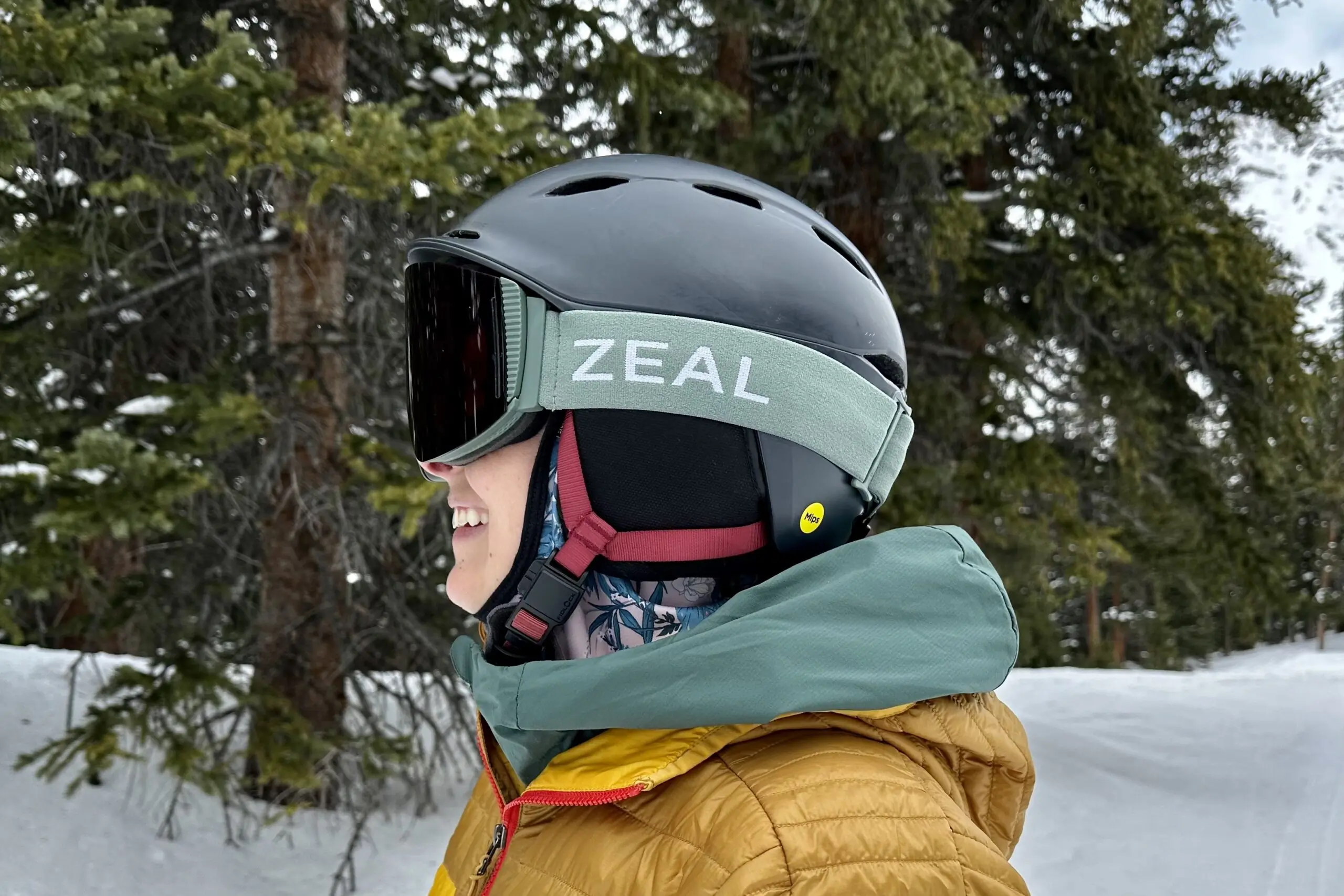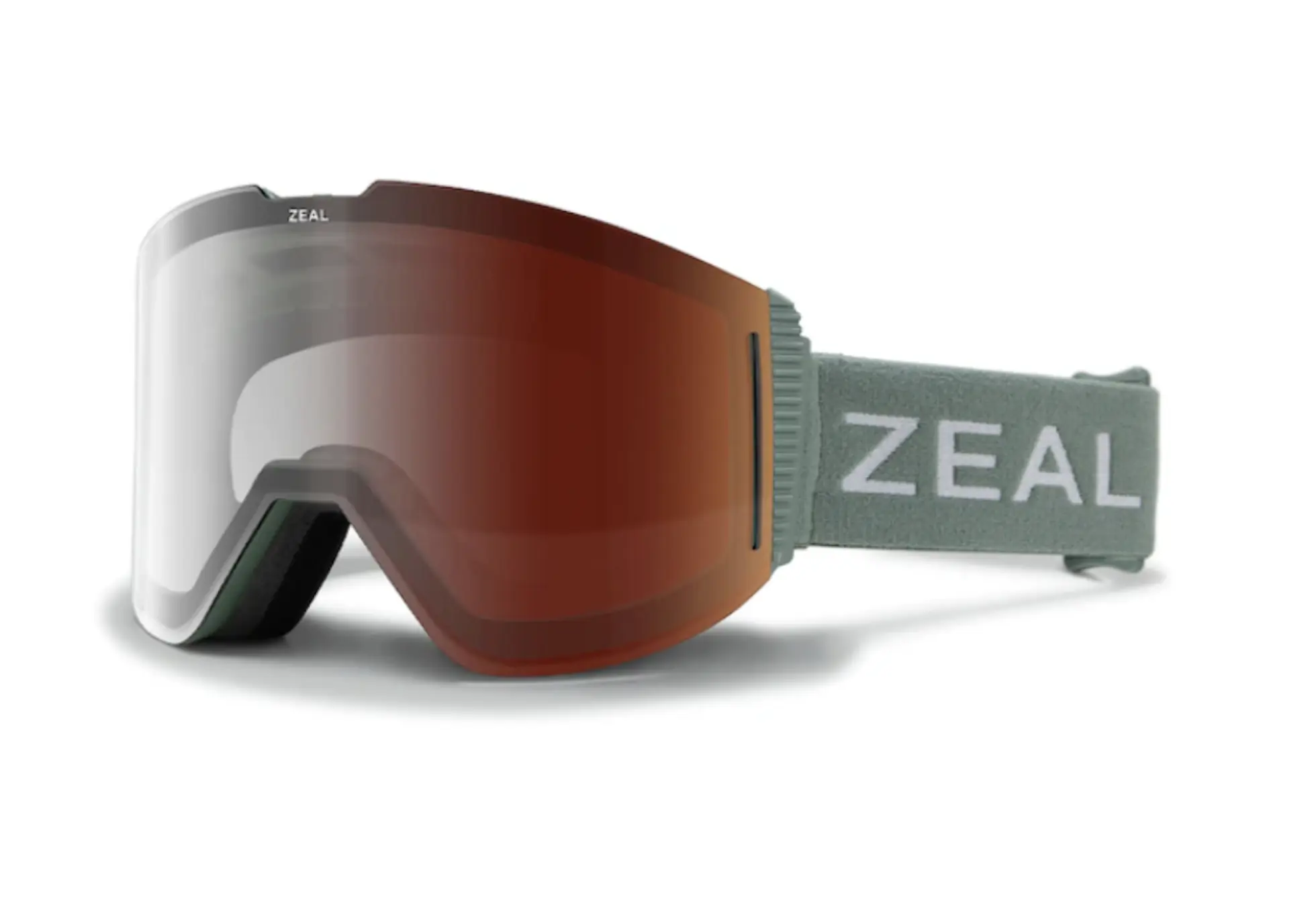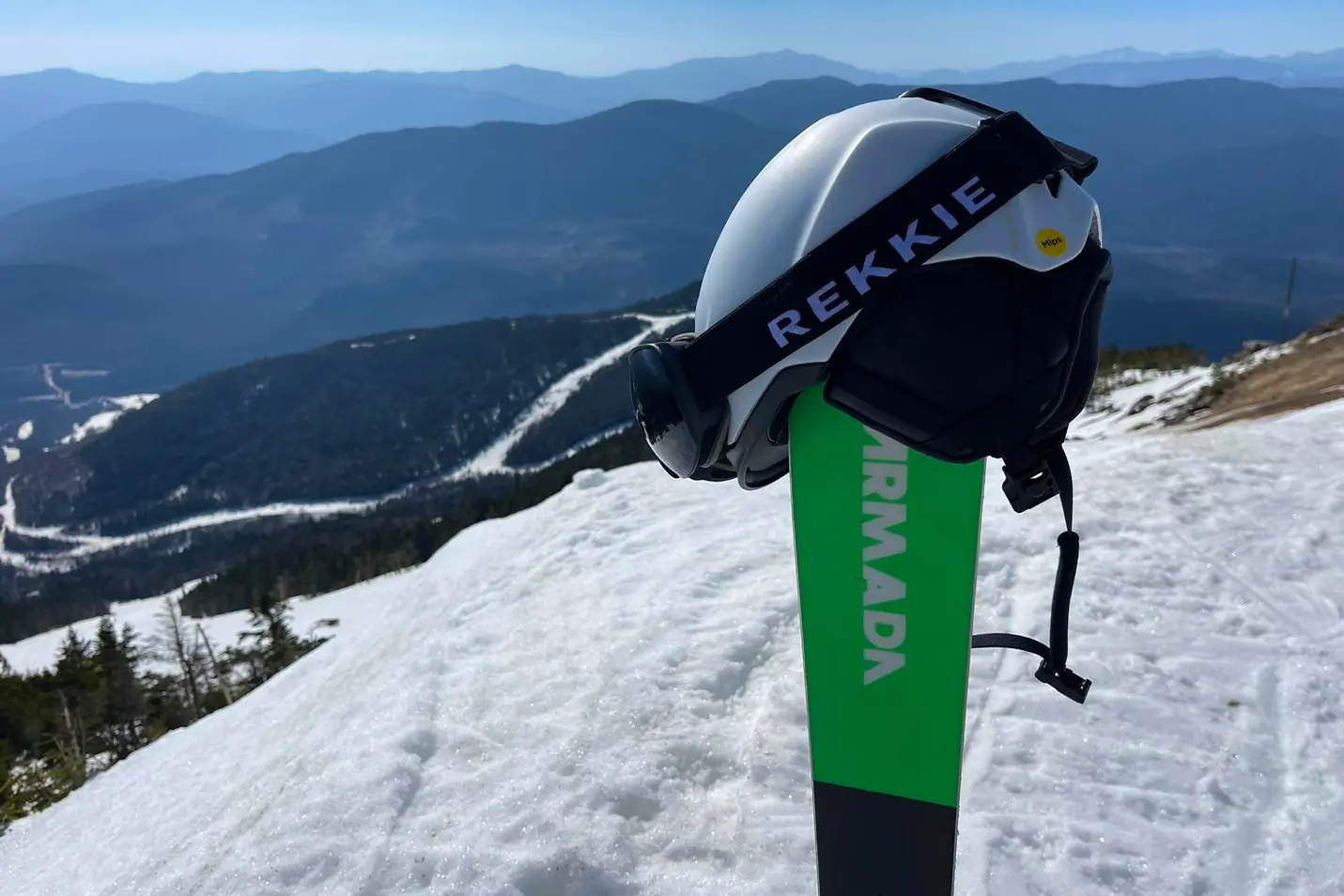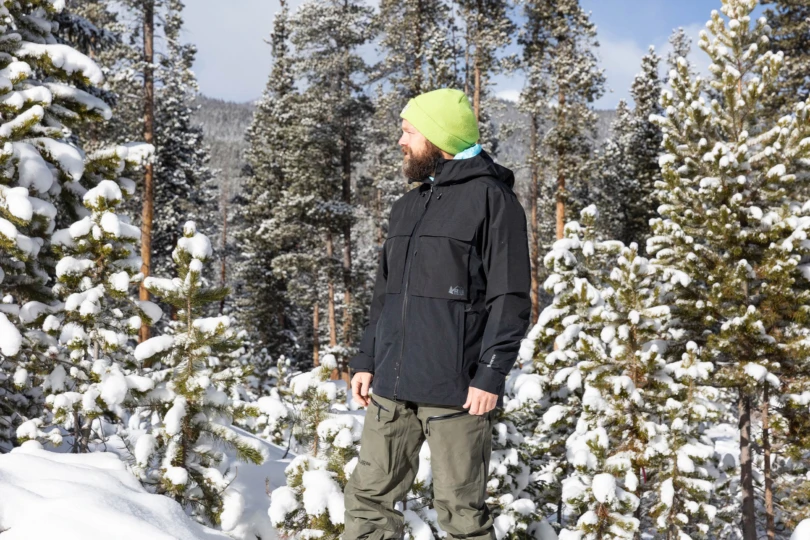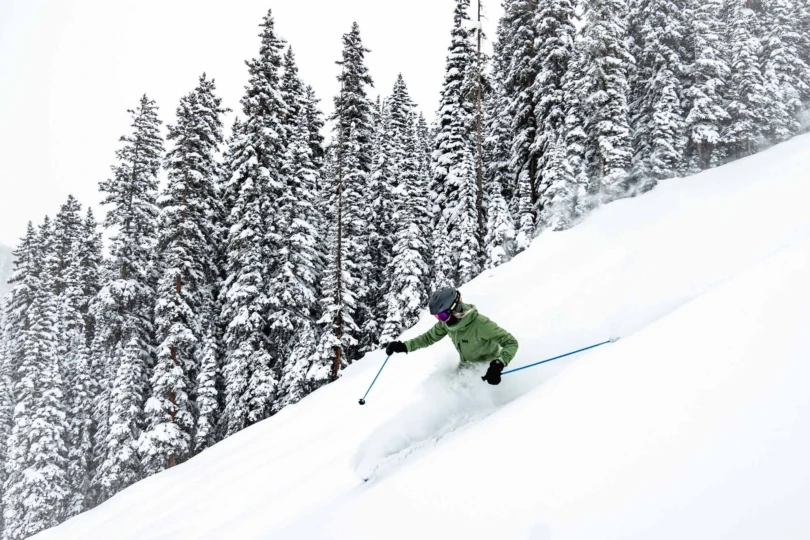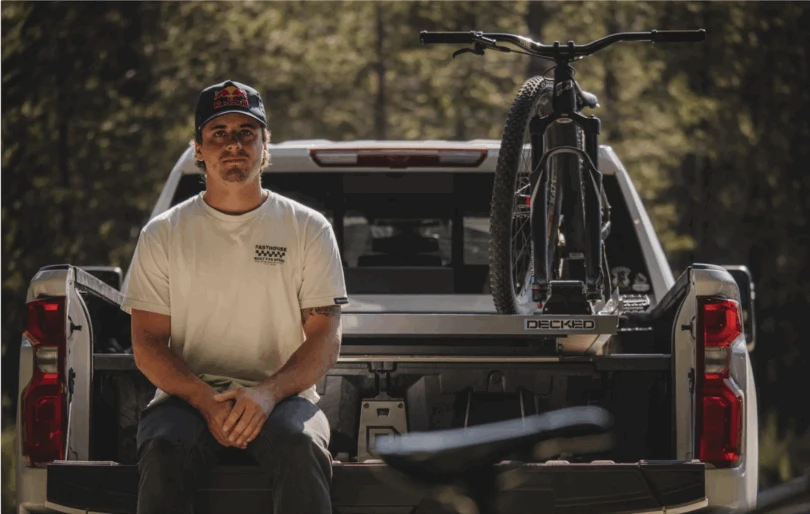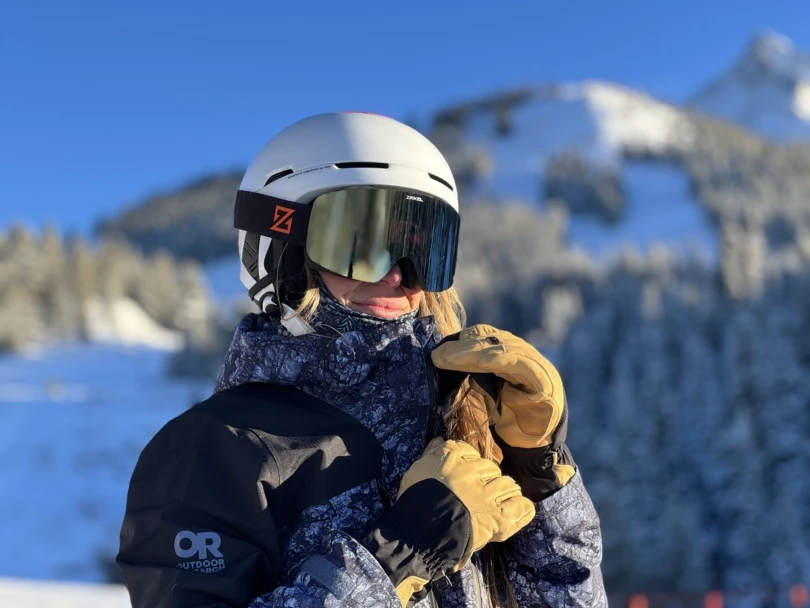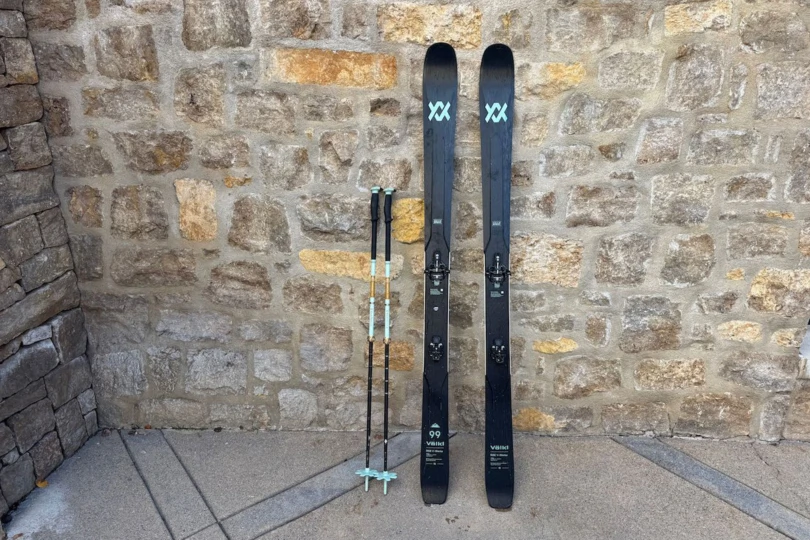I was straightlining down one of my favorite runs of the backside Arapahoe Basin beneath the Zuma lift. After a couple of laps, we took the lift back up and headed over to the Beavers. That’s when the clouds moved in. All the light disappeared, and while the snow was really good, I couldn’t see a thing beneath me. I strained my eyes.
As soon as I got down, I dug into my pack and swapped my existing goggles for the new Zeal Lookouts I had meant to start testing. Zeal was boasting its latest polarized, photochromic, automatic lenses that can adjust to a wide range of light. They’re designed for days like this one.
I put them on and was soon impressed. The clarity was notable. Sure, the light still wasn’t great, and I could tell most of my fellow skiers were ready to call it after a full, chilly day. But I could see. Zeal isn’t messing around with the Lookout Goggles.
In short: The Zeal Lookout Goggles ($269-319) are top-shelf, incorporating Zeal’s Optimum, Automatic+, and RailLock tech into a traditional cylindrical style. These goggles are polarized, and I can’t stress how nice the clarity is! I live in Colorado, which touts 300 days of sun. But don’t think that means all my ski days are perfectly bluebird conditions — far from it. I get plenty of blustery, windy, overcast, and crappy-light days, too. And it was on these occasions that I most appreciated the performance of these Zeal goggles. I tested the Sage frames, gray base automatic+ lenses. Zeal describes the fit as medium (and it fits my smaller face well).
For a deeper look at how these goggles stack up against the competition, check out GearJunkie’s guide to the best ski goggles.
- Best for: Versatility
- Lenses: 2
- Frame size: Medium
- Lens shape: Cylindrical
Pros
- 30+ frame and lens color combinations
- Great clarity, super versatile
- Comfortable all day
- Photochromic primary lens covers almost any conditions
- Great fog prevention
Cons
- Smaller field of view for a high-end goggle
- Expensive
- "Medium" fit fits smaller faces very well, larger faces just OK
Zeal Lookout Goggles Review

When the clouds roll in and the light quickly darkens, the Lookout’s polarized photochromic lenses transition very well. I wore these on several late spring ski days when conditions were (we hoped) bluebird. A few times, those bluebird days turned overcast and windy in the afternoons.
Flat light is my absolute least favorite thing when it comes to skiing. I don’t have great vision, but even if you do, you’ll understand my frustration when the light gets flat. It becomes so much harder to see where you are skiing. Call me crazy, but I like all the extra clarity I can get. I like being able to see what’s in my peripherals. And I definitely like being able to see what terrain lies ahead.
Zeal’s Optimum polarized Automatic+ lenses transition in just a few seconds and offer great contrast and clarity. Low light or cloudy conditions aside, there’s another great perk to goggles that adjust to a range of VLT: skiing in and out of trees. Oftentimes, when you encounter changing conditions throughout the day, the change is slower (think clouds moving in, in the late afternoon).
But sometimes, storms can blow in fast, or, you may spend the day switching from runs in full sun to dense, shady trees. On my last day of testing these before writing this review, I spent the day zig-zagging across the mountain, from the tippy top lift down the north face and all the way around to the base, weaving across different slopes, popping in and out of trees.
It’s true that photochromic lenses aren’t perfect. They take anywhere from 10 seconds to a minute to adjust to varying light. But still, it’s faster than stopping to swap lenses. Especially, if you haven’t bothered to pack a spare, or simply don’t want the hassle. The point of investing hundreds of dollars in this type of transition goggles is so you can pick one for the day that you know you can rely on for nearly everything.
The Zeal Lookouts do this nicely.
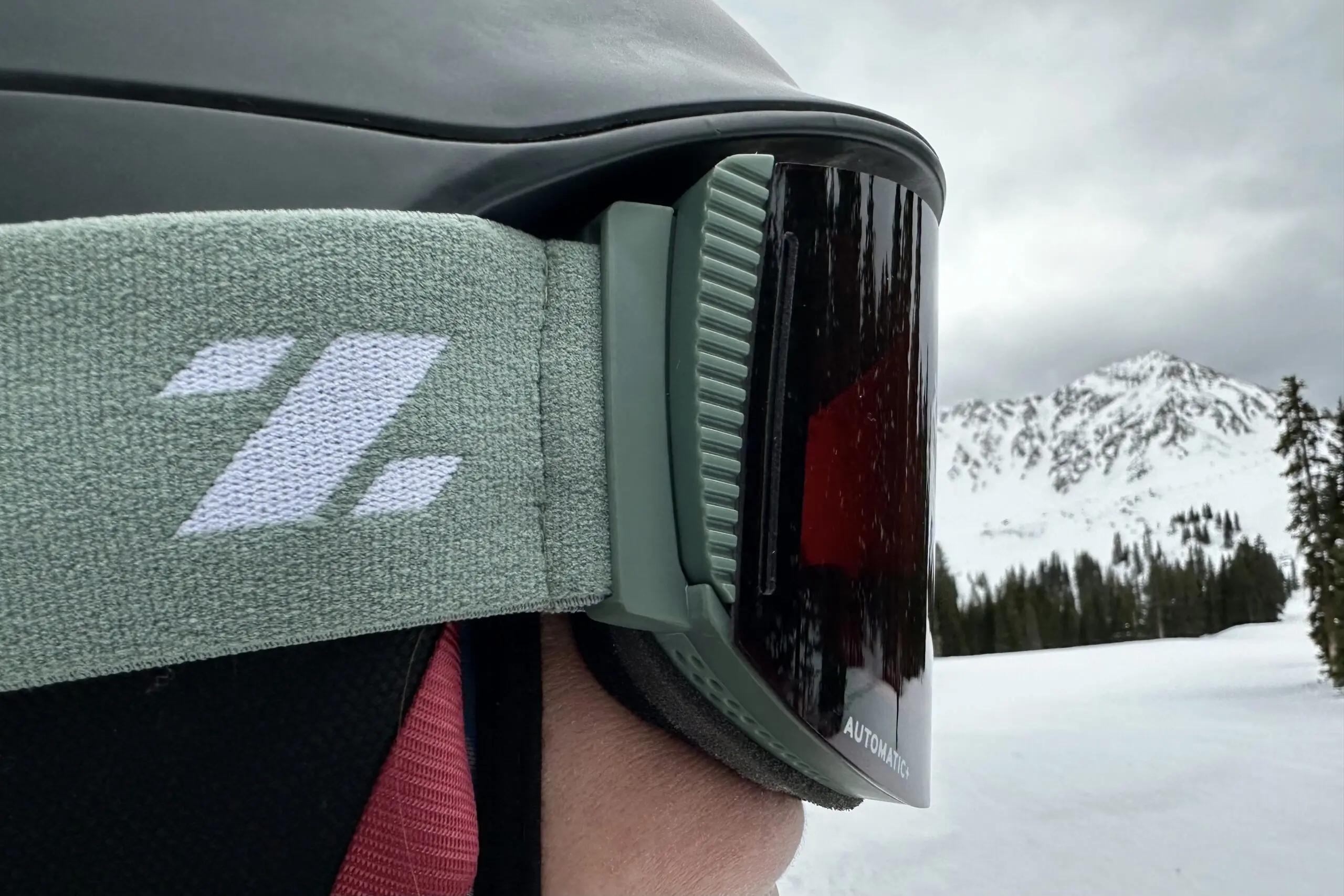



What’s great: These goggles offer great visibility in any conditions, have great overall contrast, and provide a clear field of view.
Where there’s room for improvement: I wish there wasn’t a learning curve to Zeal’s RailLock system. It’s a crazy good and convenient design, and once your lenses are on, you know they’ll stay on. It is much more secure than systems that only rely on magnets that can pop out. But it does take a few times wearing for it all to “click,” so to speak. And, it’s not as seamless as a magnetic system, as the Lookout’s lenses can’t be swapped one-handed.
That all said, the RailLock did prove to be plenty secure: Even when I stretched, bent, and dropped the goggles. Once the lenses are clipped in, they aren’t coming off easily.
Zeal Goggles in Comparison
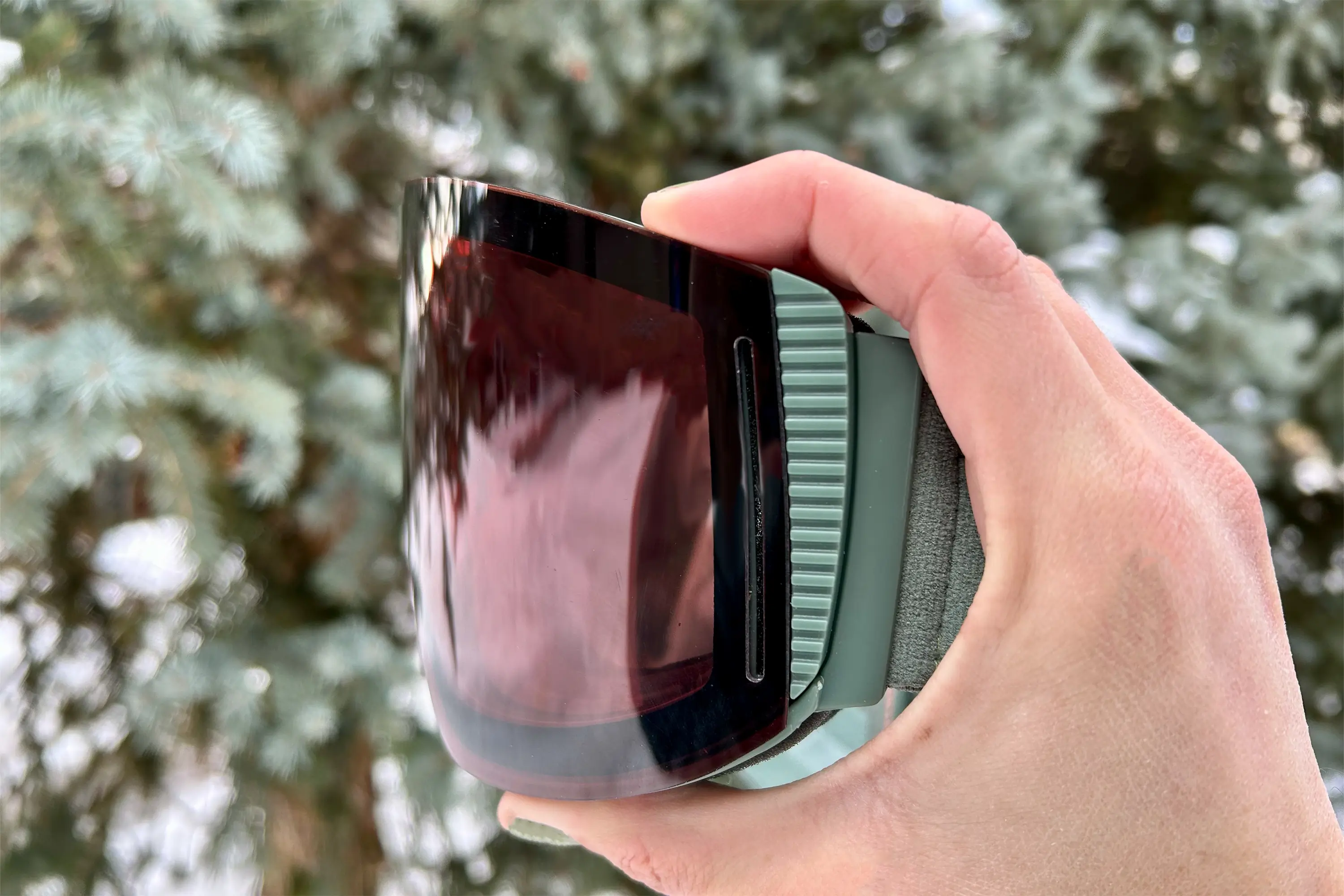



Comparatively, the Zeal Lookout isn’t as large or bulky as the Hangfire or Cloudfall spherical goggles. But it’s still in the same price range. The impressive field of view is very close between the three Zeal goggles, especially coming from a cylindrical lens. It’s better than a couple of the more basic goggle models I keep within reach: the Glade Adapt, Smith Squad, and the Anon M41.
If you are curious how it compares to top-shelf goggles like the Julbo Cyrius, Sweet Protection Boondock RIG, or Smith’s 4D Mag, well, I’ve never been able to wear those models. They just never fit my face quite right — they’re too big.
Zeal offers photochromic and polarized lens variations in all three of these models. So why choose the Lookouts? Even without the automatic light transitioning, this is a great goggle that fits super well and doesn’t fog — so, pick the option that falls in your price range.
For me, the fit was much better and more secure than the most similar alternatives from other brands. They were super comfortable and well-ventilated, and yes, the optics were top-notch. The clarity is great, and the field of view is enhanced by 20% thanks to Zeal’s observation deck technology, the brand claims.
I also found the lens-switching system to be a lot more secure than the Smith 4D Mag and more recent Anon M4S (although I still love the Anon goggles for smaller faces as well).
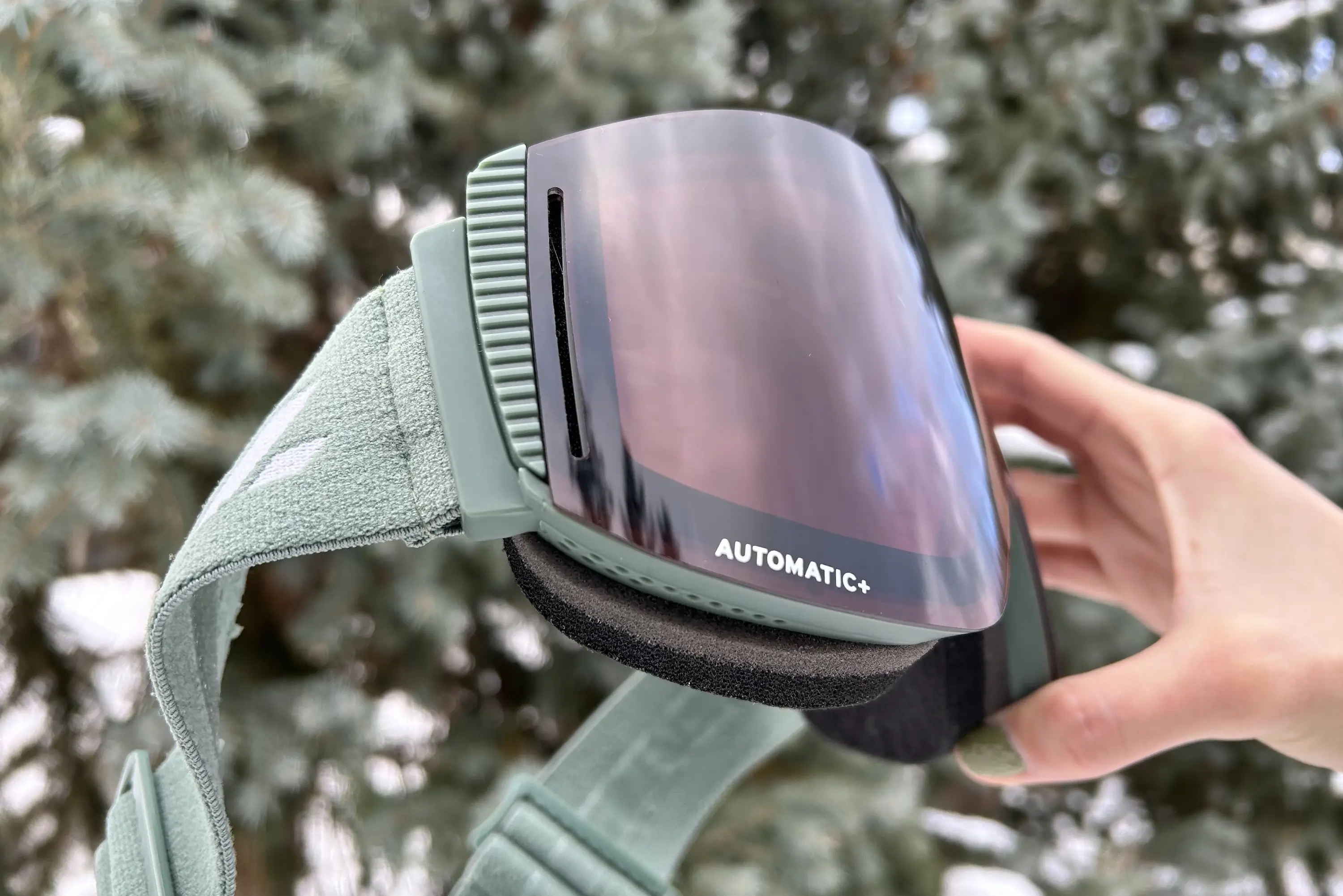



The Lookouts are most comparable to the Smith ChromaPop Mag and Zeal’s fellow Hangfire (which we also tested) in terms of field of view, clarity, color, and performance — with the main difference being the shape. The spherical Smiths and Hangfire are larger and kind of bulgy, so the Lookout was much more comfortable and better fit my face.
As you can see, even though GearJunkie tested both, our two editors have different-size faces and preferences.
Conclusion
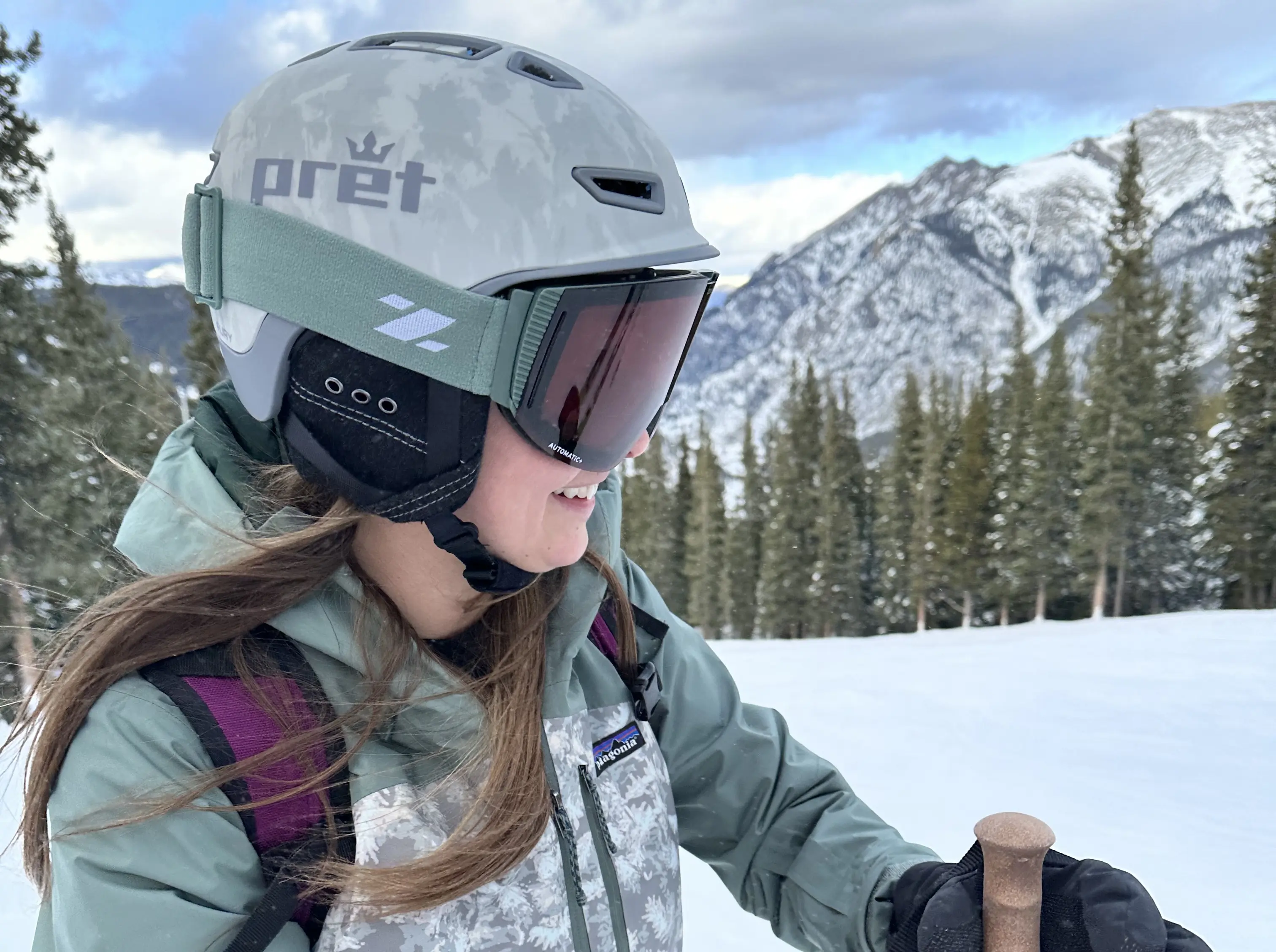



Ultimately, the $269-319 price range is going to be a stopping point for many people. But if you are considering other goggles in the $250+ price range, you should add the Lookouts to your considerations. This goggle was easily one of my favorites I had in testing in late spring, and I was sad to have to stash it away by May. I used it on the daily skiing and snowshoeing in all sorts of conditions (and already a few days this fall).
Thankfully, winter is back, and I know I’ll have many more epic days with improved clarity and field of view this season, thanks to the Lookouts. Yes, even if the skies are overcast. Bring on the flat light and the fog. I won’t have to change lenses, though I could if I wanted to. And no matter the weather, I won’t have to bail until the very last chair of the day — or until my quads go numb and legs turn to mush, whichever comes first.
This boutique Colorado-based eyewear brand aimed high, and hit its target. After testing Zeal’s Lookout, I’d say it’s the brand’s best goggle yet. At least for all of us skiers with smaller faces who want to invest in high-performance optics, or for anyone who prefers a traditional cylindrical lens over a bug-eye spherical lens.
Changing lenses is really tricky one-handed, but otherwise, it’s perfect. Zeal: please don’t change a thing.
